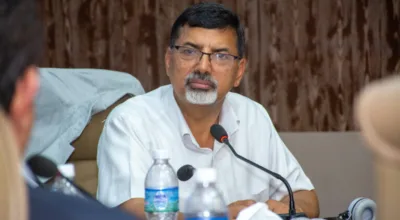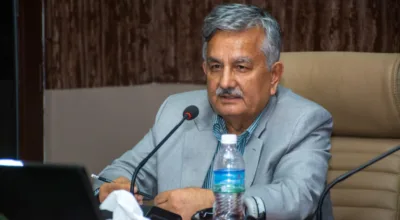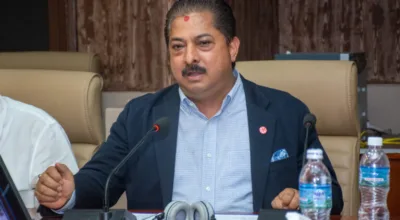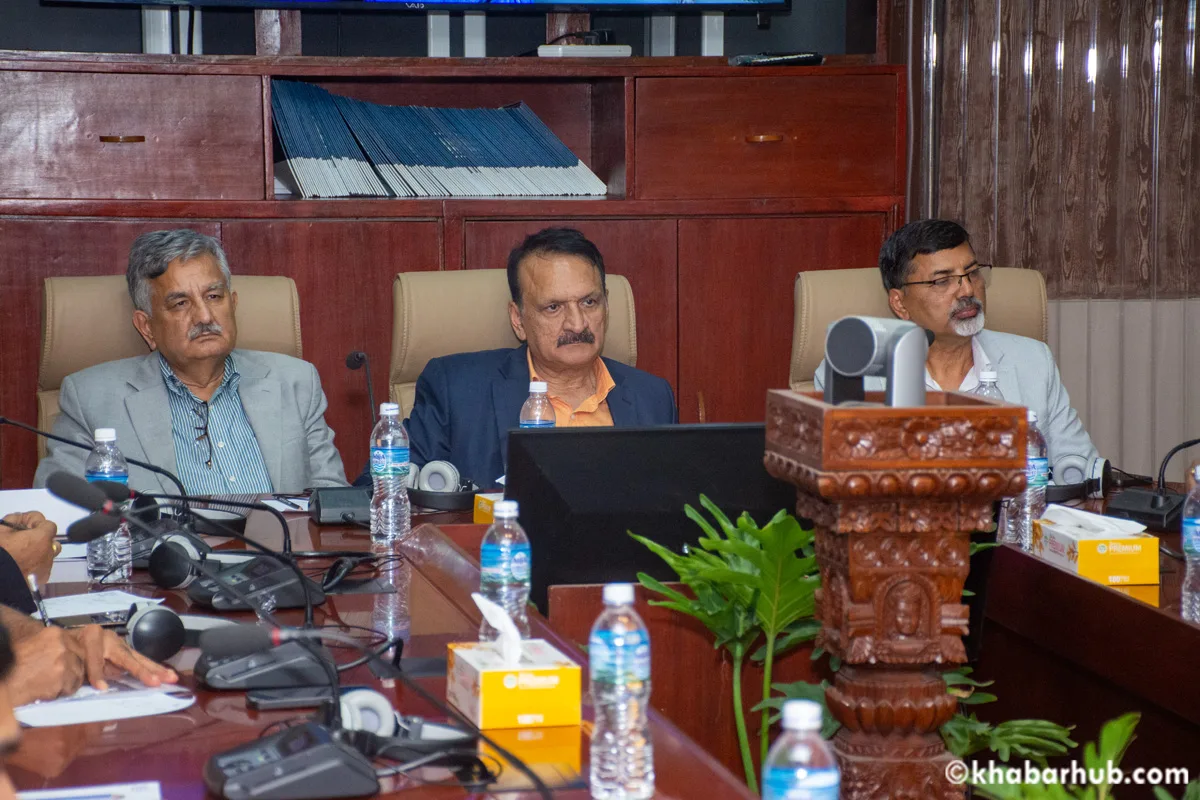KATHMANDU: Former finance ministers have expressed concerns that the recent increase in customs duty on sponge iron, essential for iron rod manufacturing industries, undermines industrialization efforts.
Speaking at a program on the ‘Effect of Political Instability on Industrial Business’ event organized by Khabarhub on Friday, they criticized the government’s manipulation of tax rates through the Economic Act.
Finance Minister Barshman Pun, via the Economic Bill 2081, raised the customs duty on imported sponge iron from 1 percent to 2.5 percent and imposed a 1 percent duty on previously duty-free scrub iron.
Meanwhile, the 5 percent duty on billets, a semi-finished raw material, remains unchanged. The bill also eliminates excise duty on tickets.
Consequently, sponge iron and scrap iron imports have become more expensive for smelting industry operators, while billet-based industries benefit from cheaper imports.
Former Finance Minister Janardan Sharma criticized the changes, stating that the alterations in customs rates hinder industrial progress.
“What has happened now is wrong,” Sharma said. “How is industrialization possible without backward integration? Even due to political instability, industrialization is not possible; instead, the billet could be made 10 by making the sponge 5.”

Sharma highlighted that industries using sponge iron achieve a 54.76 percent value addition, compared to 11.50 percent for those using billets.
He emphasized that during his tenure, tax rate changes were made with extensive research and consultation for industrial growth, and the current government failed to consider value addition in their decisions.
Additionally, Sharma noted that industries have consumed electricity worth 70 billion rupees, creating employment, and that arbitrary changes are detrimental. “Unless we can advance in the resources, labor, and technology that we have, we cannot develop,” he asserted.
Similarly, former Finance Minister and UML Secretary Surendra Pandey remarked that sometimes issues arise when industrialists misinform policymakers.
He suggested that while businessmen bear some responsibility for the current tax rate manipulation problem, the Council of Ministers has the power to amend it.

“Sometimes the industrialists also brief the policymakers wrongly; the businessmen are also to blame,” he said. “The cabinet can change the tax; it can happen even now.”
Former Finance Minister Bishnu Paudel replaced the budget introduced in the financial year 078/79 through a bill, and Janardan Sharma reduced the 5 percent customs rate to 1 percent on sponge iron used by the iron smelting industry.
Sharing his views on the occasion, former Finance Minister Dr. Prakash Sharan Mahat continued the policy introduced by Finance Minister Sharma, but he argued that the current policy should be revised.
“It should be corrected; there should be a policy to distinguish between raw materials and finished products,” he said adding that a policy should be introduced to encourage the industry, not a tax policy based on sloppiness.

During the program, Senior Vice President of the Federation of Nepalese Chamber of Commerce and Industry (FNCCI) Anjan Shrestha, President of Nepal Chamber of Commerce Kamalesh Agarwal, and industrialist Bishnu Neupane expressed concerns that the government lacks a policy to encourage industry.

They argued that the unstable policies of the government have created significant problems for the development of the industrial sector.
Shrestha stated that the government appears to be in a state of chaos and questioned its approach to industrialization.
“What is the state’s approach to policy stability? What is the state’s backward integration policy?” he questioned.
“The state has adopted a regressive policy when it should pursue a progressive one. What is the policy on backward and forward linkage?”
Shrestha emphasized that the government has failed to explain the concept of value addition to the Finance Minister.
Kamalesh Agarwal shared the view that the Finance Bill represents a policy that will frighten the private sector.
Similarly, industrialist Neupane argued that the government should adopt policies to encourage manufacturing and assembly industries.
“At least a 10 percent advantage should be given to assemblers compared to imports. This should be enshrined in the law, and the difference in banking interest rates should also be maintained for the manufacturing industry,” he said.
Naresh Shrestha, Chairman of Khabarhub and Director of the Institute of Strategic and Socio-Economic Research (ISSR), raised questions about the Finance Minister’s argument stating a 100 percent difference between sponge iron and billet, both crucial raw materials for iron industries, and whether sponge-based industries can sustain under the current tax system.

Chairman Shrestha sought the stakeholders’ views on the political instability affecting the development of the industrial sector.









Comment